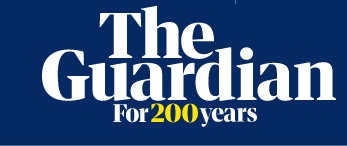Governments at Paris summit to finalise climate finance roadmap

Questions over a tax on global shipping and other big sources of greenhouse gas emissions, and how countries should go about setting up a loss and damage fund continue to be the subject of fierce discussion, as governments meet in Paris to prepare an overhaul of global development and climate finance.
Nearly 40 heads of state and government and a similar number of ministers and high-level representatives will finalise a roadmap for the reform of the world’s public finance institutions, including the World Bank, and of overseas aid and climate finance.
Governments at the two-day finance summit in Paris will now be ordered to present concrete proposals on a loss and damage fund, to be directed at the rescue and reconstruction of countries stricken by climate disaster, before the UN Cop28 climate summit this November. This must include proposals for how to fill that fund, including potential new taxes on fossil fuels.
A draft of the roadmap seen by the Guardian, dated 20 June and discussed on Thursday at the first day of the Paris summit for a new global financing pact, sets out six pages of proposals for delivery at carefully choreographed points up to September 2024. It includes items for delivery at future meetings of the G20 summit, the World Bank and International Monetary Fund annual meetings in October, Cop28 and other international meetings, up to the Summit for the Future to be held next September.
Some of these aims have already been partly achieved at the current Paris summit, hosted by the French president, Emmanuel Macron. For instance, the World Bank has agreed to start suspending debt payments for countries hit by climate disaster. However, so far these “climate resilient debt clauses” will only apply to new loan agreements, rather than being applied to existing loans.
Taxes are likely to prove a difficult point. The EU wants more countries to use emissions trading to raise funds for climate action, but some developing countries are less keen on the prospect, which they regard as complex and more suitable for use in advanced economies.
John Kerry, the special envoy for climate to the US president, Joe Biden, said the White House did not have a position on potential taxes on shipping, aviation or fossil fuels. “I support some kind of revenue raising on a broad basis, but this is not administration policy,” he told journalists, in answer to a question from the Guardian. “I personally have supported pricing carbon, but I’m not advocating a tax or a fee or anything at this point. Certainly the administration is not, but we have to find a way to find more concessionary funding.”
He also indicated that China should be a potential donor to a loss and damage fund. “You’ve got to look at this [fund] and say what’s fair, what makes sense. And people are going to ask themselves all around the world: ‘Do you think that the second largest economy in the world ought to put something into it?’ I can’t imagine people who say no, that doesn’t make sense. So that’s the kind of thing we have to work at. It’s the kind of thing we’ve got to have a discussion about.”
Absent from the draft proposals seen by the Guardian is the commitment to triple the finance available from the World Bank, which has been supported by Mia Mottley, prime minister of Barbados.
However, if the changes to the World Bank and its fellow institutions are carried out, then a significant expansion of publicly funded development banks’ ability to lend could follow
The proposals range from the highly detailed, including ways of sharing data on developing countries with private investors to help them draw up improved risk profiles on countries less likely to default on debt, to the broad brush, such as the launch of an independent body to facilitate links between countries and funds so that climate financing works a little more smoothly.
Experts are also asked to come up with a definition of “vulnerable countries”, to target those most at risk from the effects of the climate crisis and least able to build resilience against disaster.
Alex Scott of the E3G thinktank said: “If this [draft roadmap] is what comes out, we and campaigners would be very happy with this. It is a concrete roadmap that would be a clear and credible sign that this agenda for solving problems with the financial system is on its way. It sets actions governments have to take, and there are lots of ideas in here that are needed.”
cover photo:The US climate envoy John Kerry (left) and the French president, Emmanuel Macron, take part in a discussion during the summit in Paris on Thursday. Photograph: Ludovic Marin/EPA







